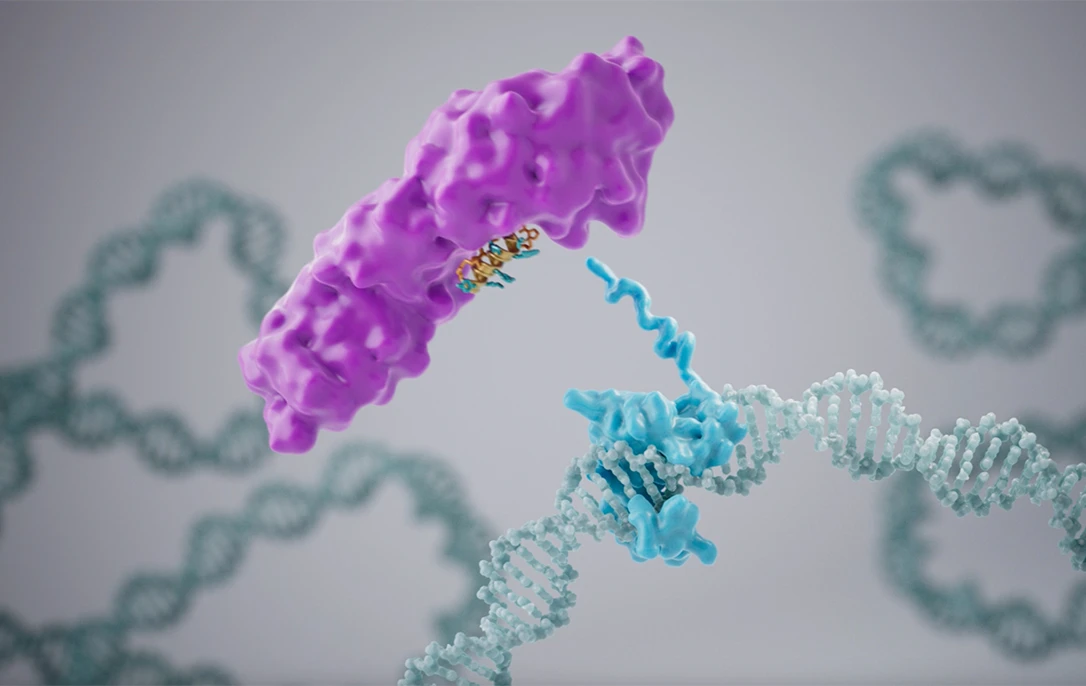DISEASE NEED
Mutations in the Wnt/β-catenin pathway were first identified as a key cancer driver across indications over 30 years ago and are implicated in millions of cases of cancer globally every year.
These mutations are seen across a range of common solid tumors, including gastrointestinal cancers like colorectal cancer, hepatocellular carcinoma and gastric cancer, as well as rare solid tumors, including desmoid and adamantinomatous craniopharyngioma (ACP).
Despite its critical role in driving disease, the key downstream node in the Wnt pathway, the β-catenin:T-cell factor (TCF) transcription complex, has long been considered ‘undruggable,’ remaining out of reach for conventional therapeutic approaches.
ZOLUCATETIDE DESIGN
Our unique Helicon™ technology is designed to interrupt the Wnt/β-catenin pathway in a way that others have thus far been unable to do, resulting in a drug that is uniquely suited to address one of the fundamental drivers of a range of common and rare solid tumors.
The investigational therapy zolucatetide is a first-in-class competitive inhibitor — and the only direct inhibitor — of β-catenin interactions with the TCF family of transcription factors. By directly targeting the β-catenin:TCF protein-protein interaction, the key downstream node in the Wnt pathway, zolucatetide is intended to block the Wnt signaling pathway irrespective of the particular mutations driving disease (including APC and β-catenin).




